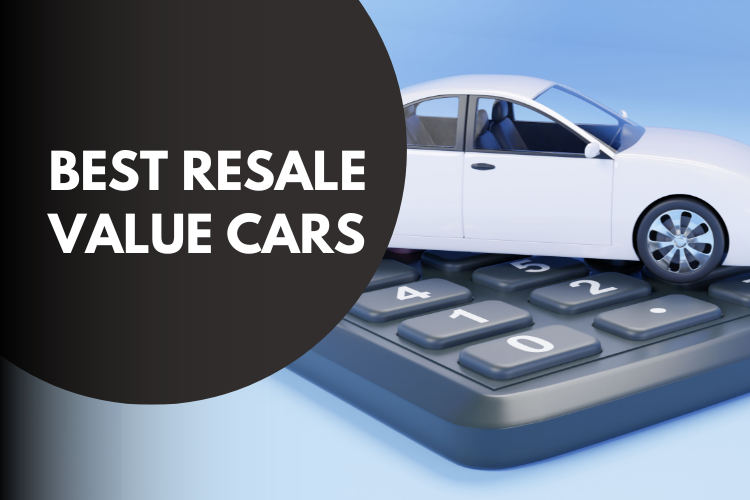When investing in a car, resale value is a crucial factor to consider. A vehicle’s ability to retain its value over time can save you thousands of dollars when it comes time to sell or trade it in. While all cars depreciate, some models hold their value significantly better than others due to reliability, brand reputation and market demand.
If you’ve been eyeing a favorite SUV, truck, sedan, hybrid, or luxury car, this guide will help you make an informed decision by providing insights into what cars hold their value best in 2025. Whether you’re purchasing a family-friendly SUV or a fuel-efficient hybrid, choosing a car with strong resale value ensures you get the most for your investment.
Key Takeaways
- Certain cars like SUVs, trucks, and sedans are better at retaining their value, making them great for resale.
- The Honda CR-V, Toyota Tacoma, and Honda Accord are standout options for their categories.
- Resale value depends on factors like brand reputation, maintenance, and demand in the used car market.
- Sherpa Auto Transport simplifies shipping for your new or used car purchase with reliable services.
- Avoid depreciation traps by researching vehicle history and choosing models with strong reviews.
In This Guide:
- Best Cars That Hold Their Value
- Best SUV
- Best Truck
- Best Sedan
- Best Luxury Car
- Electric Vehicle
- What to Look for in Used Vehicle History
- Why Buy a Used Car?
- Tips for Buying a Used Car
- The Bottomline
- Used Cars with Resale Value FAQs
Best Cars That Hold Their Value
Most buyers focus on features, performance, and price when purchasing a car. However, understanding what cars hold their value best is crucial when considering the long-term cost of ownership. A vehicle’s resale value plays a significant role in your financial return, especially when you plan to sell or trade it in the future.
Several factors impact resale value, from brand reputation to maintenance and demand. Owning a car with the best resale value can help you save money, reduce depreciation and maximize trade-in opportunities when upgrading.
This article will explore what cars have the best resale value, the key factors that influence price and highlight the top-performing vehicles of 2025.
Best SUV
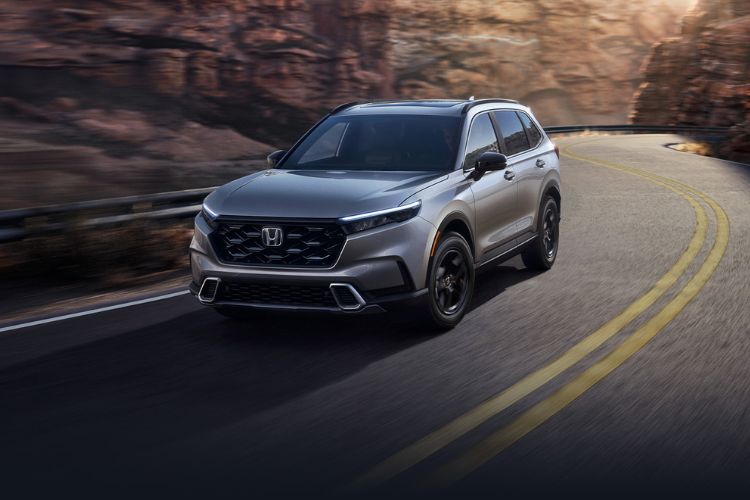
Honda CR-V
The Honda CR-V has been positioned as a compact SUV, which is widely known for its reliability, practicality, and fuel efficiency. This is why it is considered as one of the top SUVs with strong resale value.
As per iSeeCars, the CR-V is amongst the cars that hold their value; it retains about 55-60% of its value after five years, placing it among the top compact SUVs in terms of depreciation performance.
Pros
- The exceptional reliability has established a reputation that makes it a trusted choice for used car buyers, enhancing its resale appeal.
- The CR-V offers excellent fuel economy with Both gas-powered and hybrid models providing long-term savings on fuel costs.
- The spacious interior, ample cargo space, and smooth ride make the CR-V a popular choice for families.
Cons
- Limited off-road capabilities
This compact SUV is highly sought after with CR-V’s combination of versatility, reliability, and fuel efficiency helps in sustaining its resale value over time.
Best Truck
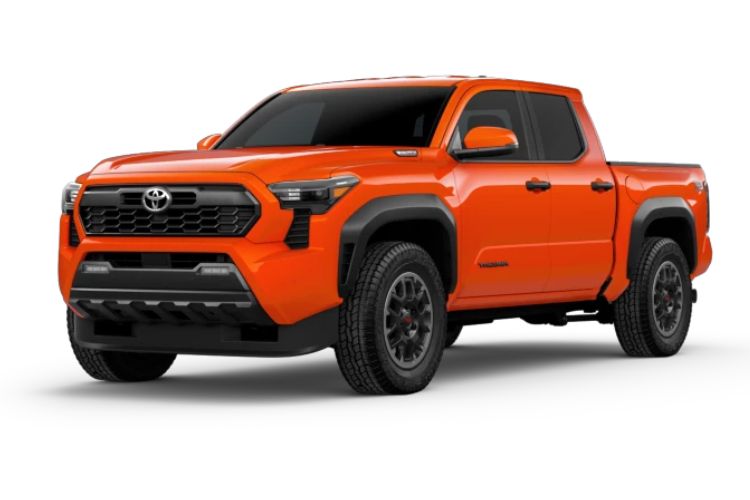
Toyota Tacoma
The Toyota Tacoma is positioned as a midsize pickup truck with an exceptional reputation for reliability and strong resale value. As per iSeeCars, Tacoma ranks among the best vehicles overall for resale value, often outperforming many larger trucks and SUVs in terms of depreciation.
Also, according to Kelley Blue Book, Tacoma consistently ranks as the top performer in its class and is considered among cars that hold their value, retaining about 70-75% of its original value after three years.
Pros
- The Tacoma is reliable and durable, it is known for its ability to withstand harsh conditions.
- The vehicle offers competitive fuel efficiency, especially in its midsize class.
- Tacoma’s off-road trims are equipped with enhanced features which make it a favorite among adventure enthusiasts.
Cons
- Interior design is less luxurious compared to competitors
Tacoma has a loyal following that has created a high demand among both work and recreational buyers. Its reputation for low maintenance costs, reliability, and versatility has held up high resale value.
Best Sedan
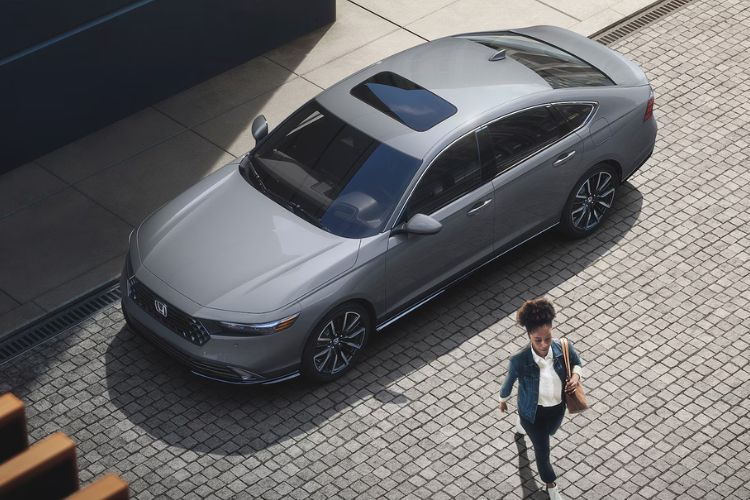
Honda Accord
The Honda Accord is a highly reliable and popular sedan known for its strong resale value. According to iSeeCars data, the Honda Accord retains roughly 55-60% of its original value after five years.
Moreover, it often appears in Kelley Blue Book’s annual lists of cars with the best resale value, further highlighting its strong market appeal.
Pros
- It is famous for its long-lasting performance.
- It offers excellent fuel economy and hybrid options that attract buyers who are looking for lower long-term ownership costs.
- It is equipped with advanced safety technologies that appeals to buyers who prioritize safety, making it a more attractive and valuable option for resale.
Cons
- Not as sporty as some competitors.
The Accord has gained widespread popularity due to its smooth driving experience, roomy interior, and modern features. This best sedan appeals to an extensive range of buyers which has increased its demand and helped in maintaining a strong resale value.
Best Luxury Car
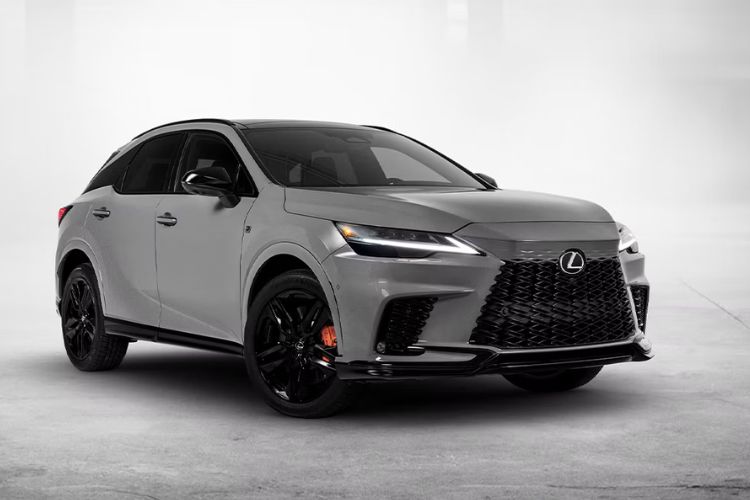
Lexus RX
Lexus is considered amongst long-lasting, dependable vehicles and is known for its trouble-free ownership experience which makes it appealing for customers and boosts its resale value. According to Kelley Blue Book, the Lexus RX is amongst cars that hold their value and retain around 55-60% of its original value after five years.
Moreover, iSeeCars also ranks the RX among the best in the luxury category for holding value over time due to its durability and low maintenance costs when compared to other luxury vehicles.
Pros
- The RX offers hybrid options that provide excellent fuel efficiency for a luxury SUV.
- It is equipped with high-end materials, advanced technology, and a quiet, comfortable cabin.
- The Lexus RX is known for having relatively low maintenance and repair costs, which is an important consideration for buyers in the used luxury market.
Cons
- Pricey upfront compared to non-luxury SUVs.
The RX comes power packed with a combination of reliability, luxury, and affordability. Its strong brand reputation and resale value performance make it a preferred choice among luxury SUV buyers.
Electric Vehicle
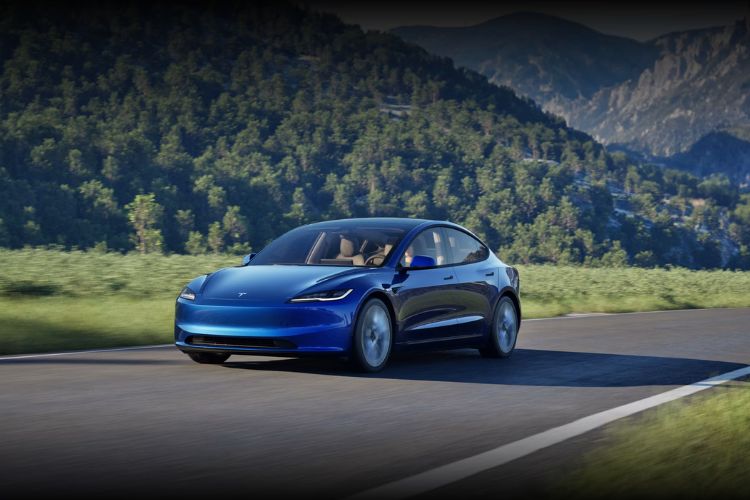
Tesla Model 3
The Tesla Model 3, despite being relatively new to the market, has demonstrated strong resale value due to its advanced technology and high demand. According to iSeeCars, the Model 3 retains around 69% of its original value after three years, making it one of the best-performing electric vehicles in terms of resale.
Moreover, it also ranks on Kelley Blue Book’s lists of vehicles in the electric cars category with strong resale value.
Pros
- The Tesla Model 3 is one of the most popular electric vehicles (EVs) worldwide which helps in sustaining a strong resale value.
- Tesla’s cutting-edge technology gives the Model 3 a competitive advantage.
- The strong performance of the car helps in reducing environmental impact, appealing to eco-conscious buyers.
Cons
- Limited availability in certain markets
Tesla’s reputation as a leader in the electric vehicle space helps bolster the value of its vehicles. Also, with fewer moving parts than traditional gasoline vehicles, the Tesla Model 3 requires less maintenance.
If cost is a big factor when debating whether you should buy a Tesla, consider buying a used Tesla or look into Tesla alternatives.
What to Look for in Used Vehicle History

When buying cars with good resale value, pay attention to the vehicle’s history.
Look for:
- Accident reports and service records.
- Vehicle condition, mileage and how it aligns with the car’s age.
- Ownership history (fewer owners typically indicate better care).
- Vehicles that are sought after model popularity.
- Advanced safety features, such as automatic emergency braking, lane-keeping assist, and blind-spot monitoring.
Click here to check out Best Cars for College Students.
These features not only improve the driving experience but also provide added peace of mind, which translates to higher resale value. Services like CARFAX or AutoCheck can provide comprehensive reports.
Why Buy a Used Car?
Buying a used car is often a smarter financial choice than purchasing a new one. Here’s why:
- Lower Upfront Costs: Used cars typically cost significantly less than new vehicles, making them accessible to a wider range of budgets. A gently used car can provide the same utility at a fraction of the price.
- Minimized Depreciation: New cars lose a large chunk of their value within the first few years. When you buy used cars, you avoid this steep depreciation and often get more value for your money.
- Affordable Upgrades: With the money saved, you can afford higher trims or additional features. For example, you might buy a used luxury vehicle for the price of a new economy car.
- Proven Reliability: Many used cars on the market have stood the test of time. Models known for their dependability often come with extensive service records, giving you peace of mind.
- Certified Pre-Owned (CPO) Options: CPO vehicles offer a sweet spot between new and used cars. They come inspected and refurbished and often include a manufacturer-backed warranty.
- More Variety: Shopping for used cars expands your options. You might find discontinued models or trims that suit your style and needs better than the latest releases.
- Insurance Savings: Insuring a used car is often cheaper than insuring a new one, lowering your overall ownership costs.
Tips for Buying a Used Car

Purchasing a used car can be a smart financial move, but it requires careful research and planning to ensure you get the best value. From resale value to vehicle history, several factors can impact your decision. By following these tips, you can confidently choose a reliable used car that meets your needs and holds its value over time.
- Research Resale Value – Before buying, check which models hold their value best. Brands like Toyota, Honda, and Subaru tend to have the best resale value. Resources like Kelley Blue Book or iSeeCars can help you compare depreciation rates.
- Understand Your Needs – Determine what features matter most, whether it’s fuel efficiency, cargo space, or off-road capability. This helps you focus on cars that align with your lifestyle.
- Check the Vehicle History Report – Services like CARFAX or AutoCheck provide insights into a car’s accident history, mileage, and maintenance records. A clean history can indicate a well-maintained vehicle.
- Get a Pre-Purchase Inspection – Have a trusted mechanic inspect the car before buying. They can spot hidden issues like engine wear or frame damage that may not be immediately noticeable.
- Negotiate Wisely – Don’t accept the asking price without negotiating. Use your research to justify a fair offer based on the car’s condition and market value.
- Buy from Reputable Sources – Consider purchasing from certified dealerships or private sellers with positive reviews. Be cautious of deals that seem too good to be true.
- Look for Certified Pre-Owned (CPO) Vehicles – CPO cars come with warranties and thorough inspections, offering extra peace of mind. They may cost more, but the added security can be worth it.
- Plan for Transport – If buying from a distant location, arrange for reliable transport. Companies like Sherpa Auto Transport ensure your vehicle arrives safely.
- Understand Financing Options – Shop around for the best loan rates if you are financing your purchase. Pre-approved financing can give you a stronger position in negotiations.
- Test Drive the Car – Always take the car for a test drive. Listen for unusual noises, check handling, and make sure all features work as expected.
The Bottomline
Choosing a car with strong resale value can save you thousands in the long run. Models like the Honda CR-V, Toyota Tacoma, and Lexus RX consistently retain their worth, making them smart investments. Whether buying new or used, considering depreciation, reliability, and market demand ensures you get the best return. And when it’s time to transport your vehicle, Sherpa Auto Transport offers reliable and hassle-free shipping.
Used Cars with Resale Value FAQs
What cars have the worst resale value?
Luxury cars with high initial costs, like Jaguars and Maseratis, often depreciate faster than average.
How long do cars normally last?
With proper maintenance, modern cars can last 200,000 miles or more.
What car brand is the best value for money?
Brands like Toyota and Honda consistently rank high for value, thanks to their reliability and strong resale values.
What is the cheapest month to buy a car?
December is often the best time to buy, as dealers offer year-end discounts.
References
- Edmunds. “Top 10 Cars With the Best Residual Value”
- Kelley Blue Book. “2023 Best Resale Value Award Winners”
- CarEdge. “Cars with the Best Resale Value”
- J.D.Power. “2025 BEST RESALE RATINGS”
- US.News. “2025 Best Cars for the Money”

